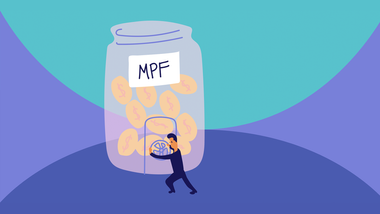An Online Seller's Guide to Currency Risk
If you trade in a stronger currency, you will have to pay more for fewer items, which can squeeze your profit margins and make competing with other businesses difficult for you. It can also affect your ability to make profitable investment opportunities.

Entrepreneurs are very familiar with taking risks. Starting a business itself is a huge risk. Risks can be valuable, but some businesses may also face hidden risks that negatively impact the bottom line if they are unaddressed.
Small things can make a big difference, and while it may not be as exciting as making the ‘big bet’ that could grow your business exponentially, having an understanding of the currency risks your business faces can help provide certainty, so you can focus on the bigger things.
If you find that accounting work is piling on and you’re scrambling to get your paperwork together, let us help you do that while you focus on bigger things. Our experienced accountants know how e-commerce businesses work and will walk you through how to optimise your accounting.
Let’s get an overview of currency risk and how you can minimize its effects on your company.
What Is Currency Risk?
Currency risk, or that thing that keeps you awake every time you make an international transaction, is the exchange rate risk that comes with doing business globally.
When you transfer money to another country, currency risks can affect your foreign exchange revenues if your money doesn’t convert into its local currency at a sufficiently high exchange rate.
The best way to think of foreign exchange risk is as the potential volatility in certain markets due to political events, economic shifts, or speculation.
While there is no official currency risk definition in the financial markets, it simply refers to “not getting the rate originally planned on.”
In other words, if you are trading currencies, your account will change in value when the market fluctuates. And if you are investing directly into foreign companies or assets, your returns will be impacted by currency fluctuations.
Understandably, this is an important concept in finance and has a strong presence across all currency markets - from forex cards to wire transfers to devalued currencies.
Why Foreign Exchange Risk Exists
Currency risk exists because the exchange rates represent a volatile market that is subject to daily changes. It is often horizontal risk, meaning it occurs between two different currencies.
The fluctuations do not only exist between two fiat currencies (such as the dollar and the euro) but may also affect a non-fiat currency. And they can be caused by the appreciation or depreciation of both the home currency or foreign currency - either independently or together.
As a business or investor, you can face exchange rate risks when the currency of the country you are dealing with fluctuates in comparison to another currency. And this exposure or threat could potentially endanger their entire investment in the foreign country.
How Do Exchange Rates Affect Businesses?
Forex risk can affect anyone who engages in international transactions due to its unpredictable nature. That's why it is essential to understand currency risk basics as you enter the global economy whether you are a small business owner, an international investor, or a student studying abroad.
Volatile exchange rates aren’t always bad for your business. Since it is difficult to protect your business against foreign exchange rate risk, here are the two ways in which it can affect your business.
Pros of Currency Risk for Businesses and Investors
When you trade in a weaker currency, you can obtain more goods and services in the same investment. It can help increase your profit margins, making your company more competitive in the market.
For example, if you are a UK-based company sourcing raw materials from Bangladesh, the fluctuation of the weaker currency can cause you to spend less on the overall product manufacturing costs.
Cons of Currency Risk for Businesses and Investors
If you trade in a stronger currency, you will have to pay more for fewer items, which can squeeze your profit margins and make competing with other businesses difficult for you. It can also affect your ability to make profitable investment opportunities.
It is also important to note that frequent negative impacts of currency risk can undo your portfolio’s progress and even lead to a significant loss over time.
Foreign Exchange Rate Management
Currency risks could be transactional, translated, or economic. While you can’t control economic risks, which are caused by external factors occurring in a country’s economic landscape, you can manage transactional and translated currency risks.
Whether you want to source goods or send money abroad, you can manage currency risk with the help of Osome's integrated accounting service and global payment partners.
Osome is a professional incorporation company that lets you register your business in Hong Kong, and helps you with your accounting needs. We walk you through the formation process step by step and equip you with the right tools to help you set up your multi-currency business accounts, so you don’t have to pay high forex charges every time you make international transactions. Speak to an Osome consultant today.
Osome Partner
This article was contributed by our partner OFX. As well as offering typically lower fees and rates, OFX can also help you develop a strategy to help protect your profit margins and create more cash flow certainty, allowing you to focus on growing your business.







